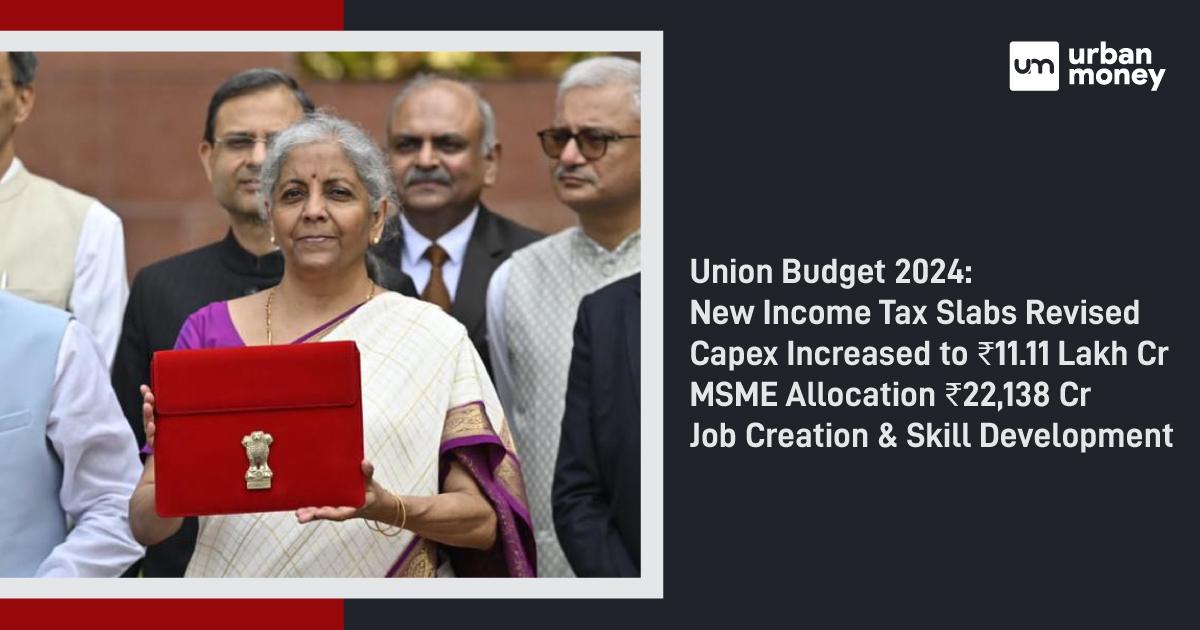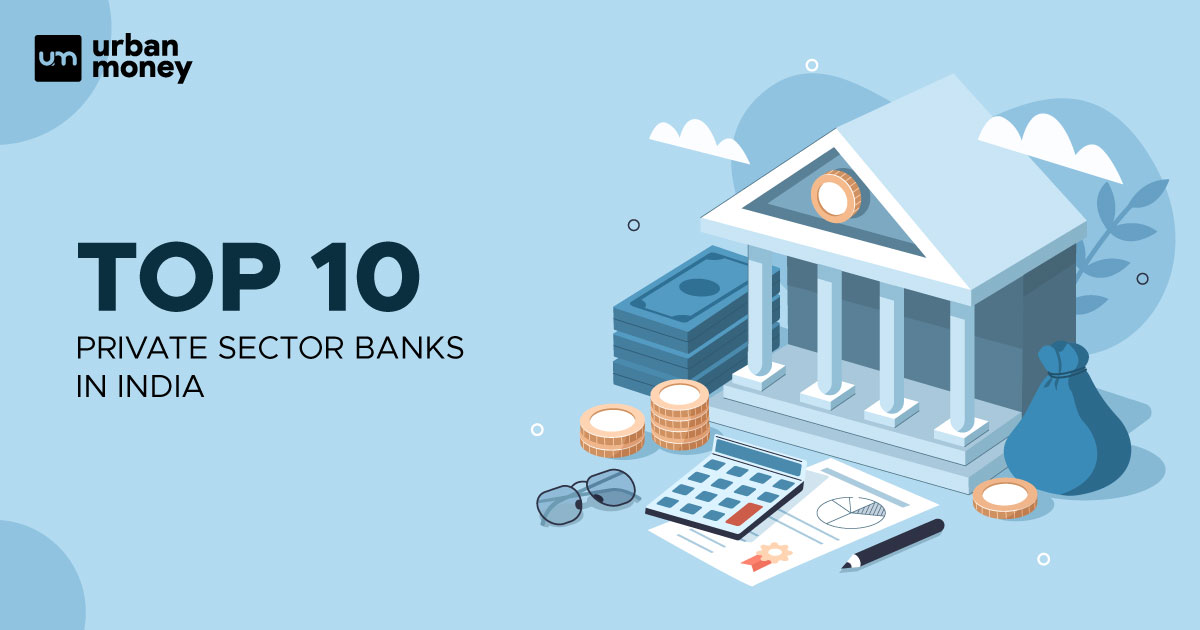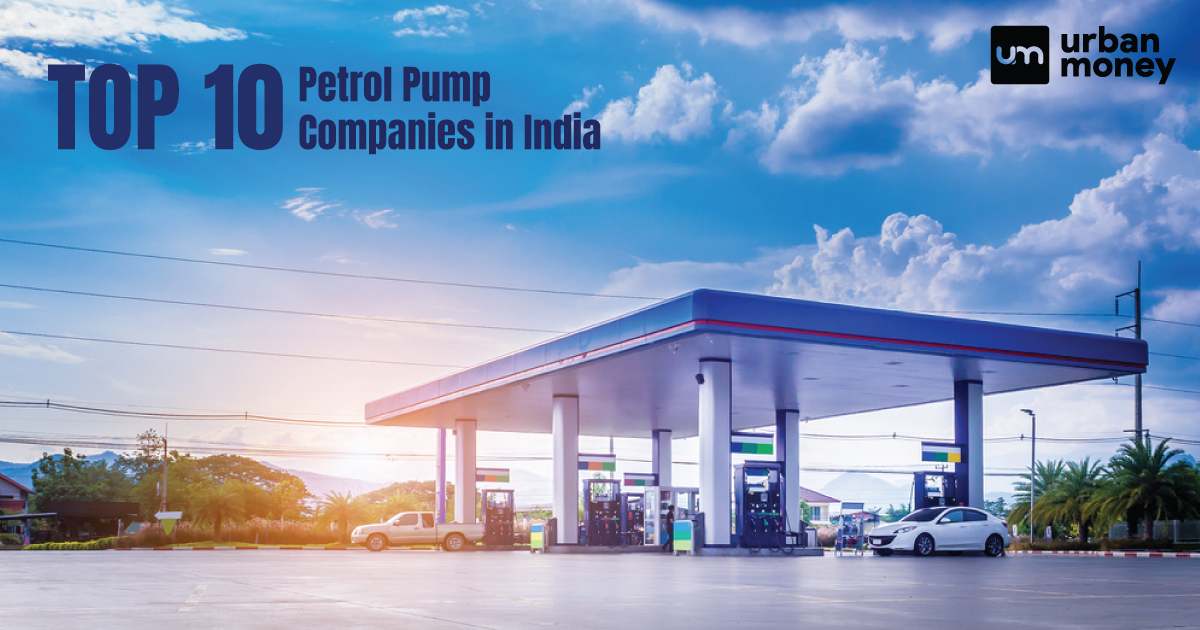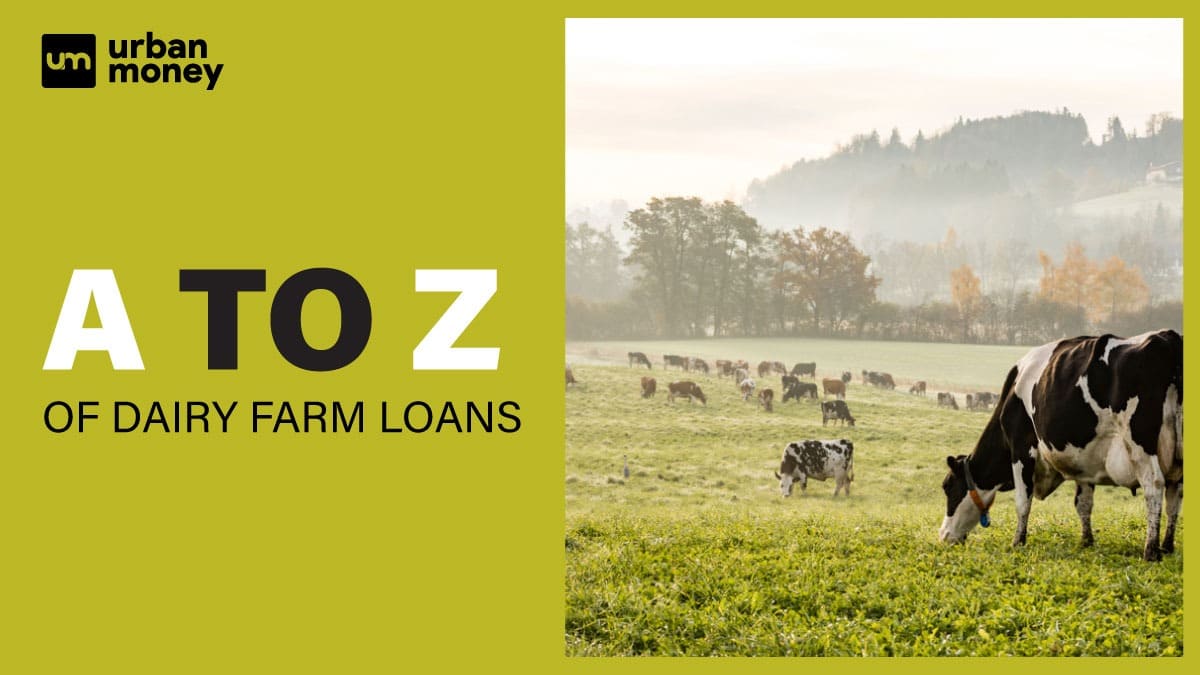Top 10 Best Private Banks in India List 2025
January 09, 2025
July 23, 2024


Finance Minister Nirmala Sitharaman presented the Union Budget 2024 today in the monsoon session of the parliament. This first budget of the newly formed union government marks the seventh successive budget presentation of Finance Minister Nirmala Sitharaman. This achievement created history for the highest number of budgets presented by a single finance minister, surpassing the record of former Prime Minister Morarji Desai.
The Central Budget outlines the government’s achievements in the past financial year and describes the allocations and prospective income and tax changes for the coming fiscal year.
In her presentation of the Union Budget for the fiscal year 2024-25, Finance Minister Nirmala Sitharaman emphasised the stability of India’s inflation rate, which is steadily nearing the 4% target. She also noted that the current core inflation rate is 3.1%.
India, now ranked as the fifth-largest economy globally, is on a path to ascending to the third-largest soon. Before the budget announcement, Prime Minister Narendra Modi emphasised that India is the fastest-growing major economy in the world and voiced confidence that Budget 2024 would propel the vision of ‘Viksit Bharat’ by 2047.
| S. No. | Highlights |
| 1 | New income tax slabs announced. |
| 2 | Capital expenditure outlay has been increased to ₹11.11 lakh crore, which is 3.4% of GDP. |
| 3 | New initiatives to create more job opportunities and skill development. |
| 4 | The allocation for the MSME ministry increased to ₹22,138 crore. |
| 5 | Continued support with increased funding for agricultural reforms |
| 6 | Enhanced incentives for solar and wind energy projects |
| 7 | 40,000 rail bogies to Vande Bharat coaches and expanding key rail infrastructure projects |
| 8 | Increased funding for digital learning initiatives and infrastructure improvements in the education sector. |
Finance Minister Nirmala Sitharaman highlighted 9 priorities of the Union Budget 2024, these include:
The Union Budget 2024 prioritises enhancing productivity and resilience in agriculture. Key measures include:
| Total Allocation: | ₹1.35 lakh crore |
The budget places significant emphasis on generating employment and enhancing skills. Key initiatives include:
| Total Allocation: | ₹20,000 crore |
The budget underscores the importance of inclusive human resource development and social justice. Key areas of focus include:
| Total Allocation: | ₹2.5 lakh crore |
The budget aims to boost the manufacturing and services sectors through several key initiatives:
| Total Allocation: | ₹1.75 lakh crore |
Urban development is a key priority in the budget, with a focus on:
| Total Allocation: | ₹1.25 lakh crore |
The budget emphasises the importance of energy security for sustainable development. Key measures include:
| Total Allocation: | ₹75,000 crore |
Infrastructure development is a cornerstone of the budget, with significant allocations for:
| Total Allocation: | ₹10 lakh crore |
The budget prioritises innovation and research and development (R&D) to drive economic growth. Key initiatives include:
| Total Allocation: | ₹30,000 crore |
The budget outlines next-generation reforms to sustain economic growth and development. Key areas include:
| Total Allocation: | ₹1 lakh crore |
Here is a summary table for the tax reforms announced in Union Budget 2024:
| Tax Type | Changes Announced |
| Personal Income Tax | New income tax slabs announced |
| Corporate Tax | No changes to corporate tax rates. New incentives for specific sectors like green energy and technology. |
| GST | Improved compliance measures. The number of businesses and individuals paying GST has doubled since its introduction. |
| Import Duties | No changes in import duties. |
| Incentives | Continued incentives under the Production Linked Incentive (PLI) scheme for sectors like electronics and automotive. |
| Presumptive Taxation | Increased threshold from ₹2 crore to ₹3 crore for small businesses. |
The Union Budget 2024 introduced new income tax slabs to make the new tax regime more appealing. Here are the updated tax rates:
| Income Slabs | Tax Rate |
| Up to ₹3 lakh | Nil |
| ₹3 lakh – ₹7 lakh | 5% |
| ₹7 lakh – ₹10 lakh | 10% |
| ₹10 lakh – ₹12 lakh | 15% |
| ₹12 lakh – ₹15 lakh | 20% |
| Above ₹15 lakh | 30% |
Here is a table summarising the budget allocation in various sectors as announced in Union Budget 2024:
| Sector | Allocation (₹ Crore) |
| Agriculture | 1,35,000 |
| Employment & Skilling | 20,000 |
| Education | 1,00,000 |
| Healthcare | 40,000 |
| Infrastructure | 10,00,000 |
| Urban Development | 1,25,000 |
| Energy Security | 75,000 |
| Manufacturing & MSME | 1,75,000 |
| Innovation & R&D | 30,000 |
| Green Initiatives | 6,000 |
| Social Justice & Welfare | 2,50,000 |
The Union Budget 2024, presented by Finance Minister Nirmala Sitharaman, focuses on driving economic growth and development through significant investments in infrastructure, agriculture, and urban modernisation. With a substantial capital expenditure outlay of ₹11.11 lakh crore, the budget underscores the government’s commitment to sustainable development and economic resilience.









Top 10 Best Private Banks in India List 2025
January 09, 2025

Top10 List of Petrol Pump Companies in India
January 09, 2025

Dairy Farm Loan in 2025 : Online Procedure
January 09, 2025

Top 10 Best Bank for Home Loan In India…
January 09, 2025

Top10 Best Student Credit Cards in India 2025
January 09, 2025
© 2026 www.urbanmoney.com. All rights reserved.

Need Loan Assistance?